
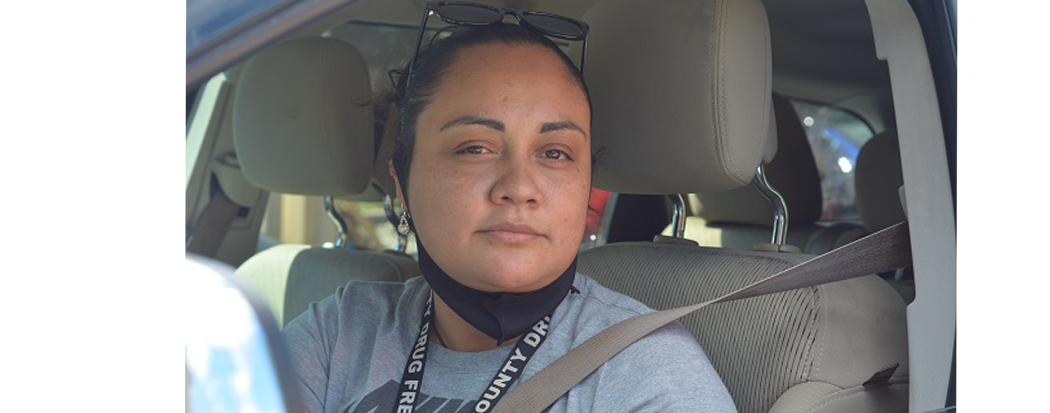
Essential Support During the Pandemic
Donations to Hispanic Federation’s COVID-19 Emergency Assistance Fund allowed for more than $11 million in emergency relief to be delivered to over 100 individuals, over 550 small businesses and 250 nonprofit agencies in severely impacted communities. Below are some examples of the community-based work you are making possible with your support.

PROJECT SPOTLIGHT: Puerto Rico, the Beacon of Hope
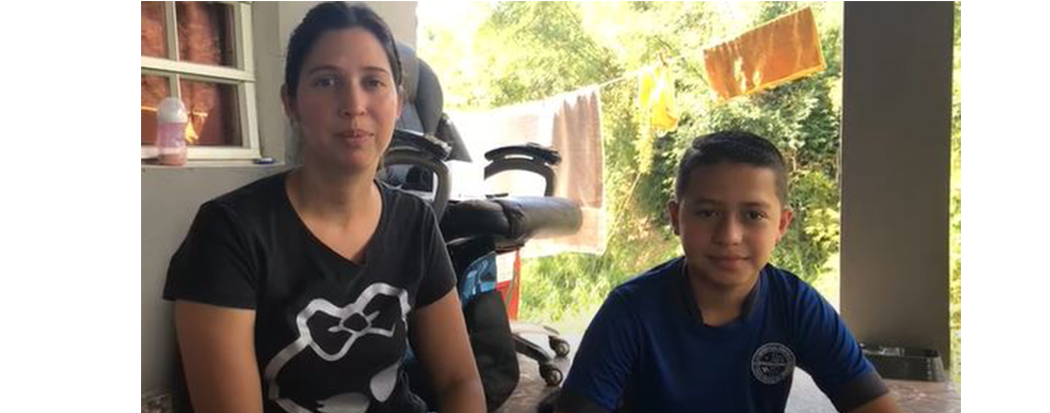
Three years after Hurricane Maria struck Puerto Rico claiming thousands of lives, destroying communities and the agriculture economy, devastating earthquakes further challenged the island’s infrastructure. Today, as they cope with the COVID-19 pandemic, the people of Puerto Rico continue to stand as a beacon of hope an example of what can be done when we work together to sustain and empower our communities.
Since 2017, Hispanic Federation has distributed $43 million towards community-led efforts, helping advance more than 130 local initiatives across the island’s 78 municipalities to build a stronger and more resilient Puerto Rico in the areas of housing, renewable energy, economic development, agriculture, education, health care and water access. Because of donors like you, Hispanic Federation remains one of the largest institutional contributor to the island’s determination to rise from the debris.
With islanders focused on re-stabilizing their lives--interrupted this year by the COVID19 pandemic--many had difficulty responding to the 2020 Census this summer, recording the lowest self-reporting percentage among 50 states, Washington, D.C., and Puerto Rico. However, we doubled down on our Census education and outreach campaign to increase those numbers and our advocacy for Puerto Rico continues in Washington, D.C., to ensure Puerto Ricans get the funding and other resources they need.
We gather strength and hope from the people we serve, whether they are families who lost their homes or small business owners like a fledgling restaurant owner whose business plans were destroyed by the catastrophic events on the island. Their stories follow.

PopTiendas Deliver “Good Vibes”
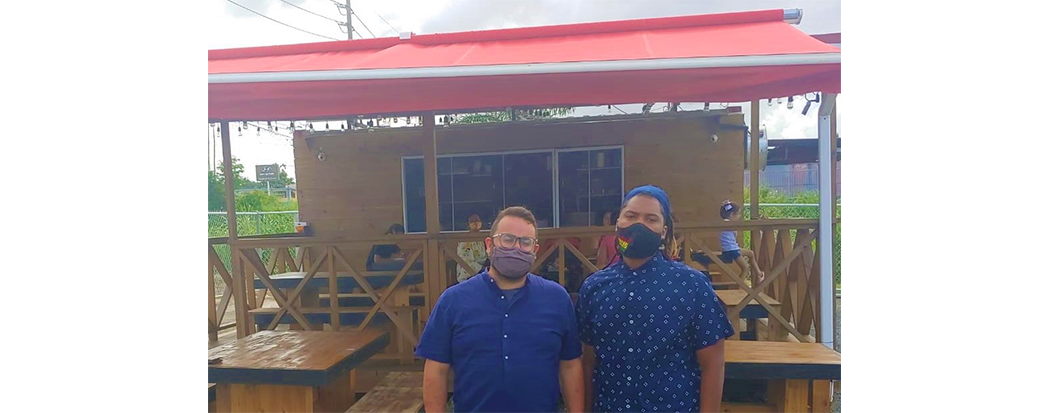
Shaquille Sanchez was readying to open a food establishment when Hurricane Maria landed in Puerto Rico in September 2017. The mega-hurricane wiped away his opening date, along with his house, current job and income. But it did not take away his dreams.
Fast forward to May 2018, when the Hispanic Federation, in partnership with The Coca-Cola Company and the Prudential Foundation, launched an innovative "PopTiendas" program for small businesses that were destroyed or damaged by Hurricane Maria. The goal was to raise at least $1 million to create sustainable, eco-friendly structures for eligible small businesses, entrepreneurs and nonprofits on the island in order to renew or open retail or service establishments. The PopTiendas would be specially modified, weather-resistant steel containers, many equipped with solar panels, rainwater collection systems and potable water storage, cold drink equipment, generators, and food service equipment.
Sanchez quickly filed his application for the program. The result is “Good Vibes Gourmet,” in Rio Grande, a combination fast food, restaurant, food truck operation featuring high quality, homestyle hamburgers and good service. The structure is even better than what he had planned, Sanchez said. It can withstand a Category 4 hurricane and “it is more cost effective to create the company with the container than to have to invest in building a concrete structure or something similar,” Sanchez concluded.

Helping Immigrant Families During COVID-19
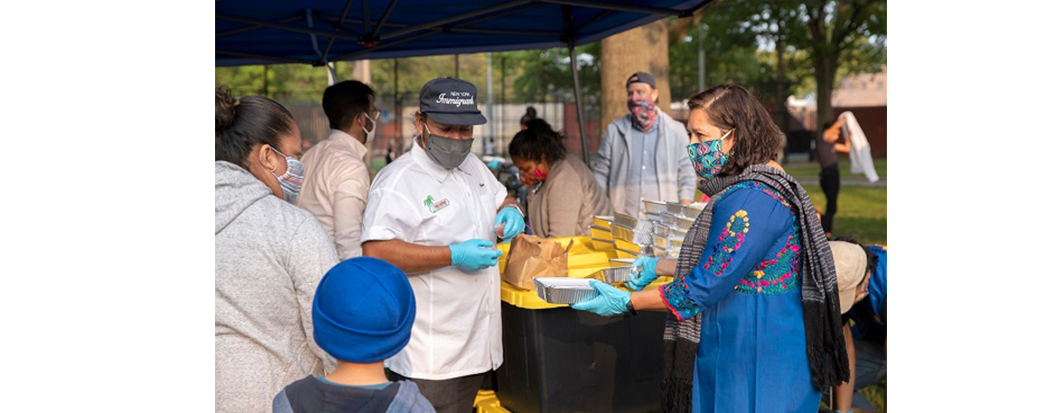
In a year filled with unexpected crises, the worst was COVID-19, the global pandemic that hit the U.S. in January and has impacted every state and Puerto Rico. Most striking has been the disproportionate impact on communities of color where there are lower rates of families with health insurance and where many workers are frontline “essential workers, such as farm workers, hospital workers including janitors, service employees, and truckers delivering food and other goods across the U.S. Many who are not deemed as “essential” workers lost their jobs.
And while Congress enacted $3.1 trillion in aid for pandemic relief, it did not include economic and health support for millions of immigrants, regardless of status, and delivered less than required for Puerto Rico.
Facing the new challenges head-on, the Hispanic Federation and donors moved quickly to work with community groups to provide cash assistance for food and rent payments to those who lost their jobs. We also assisted in food distributions and provided support for those with serious health risks and deep economic hardships. During the last six months, Hispanic Federation distributed $14 million in COVID relief assistance to more than 250 organizations across the country to ensure their sustainability.
With Congress failing to pass additional legislation that would extend the financial assistance to workers, the crisis is not over for the immigrant and Latino communities Hispanic Federation serves. Below are stories of some of our clients who turned to us for help in recent months.

Apopka, FL: Hope Community Center Provides Food Assistance to Families
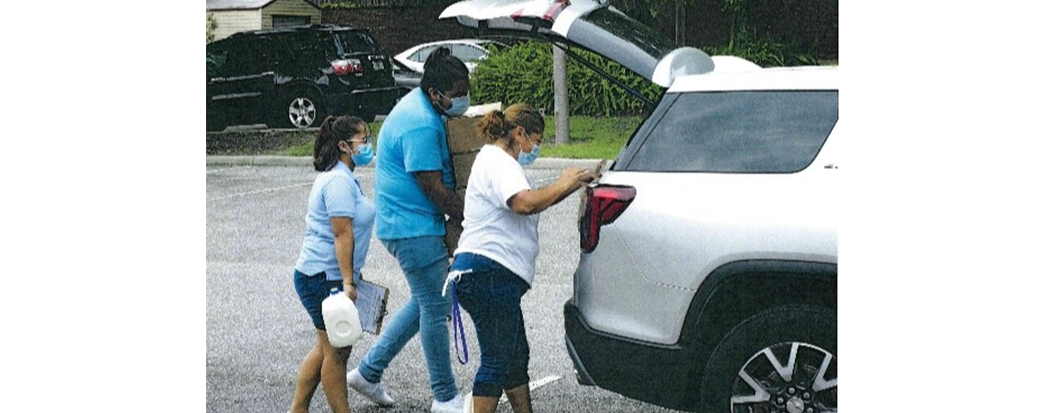
When the pandemic hit Florida, Juana, and her husband immediately felt the economic impact on their family that includes three children under the age of 6. The children are U.S. citizens, but the parents are not. Juana’s husband, a construction worker, saw his hours get cut; some days he did not work at all. Their status left them ineligible for unemployment benefits or the one-time “stimulus” checks approved by Congress. But their worries about how to get food on the kitchen table lessened in April, when Hope Community Center began weekly distributions of food that included staples like rice, beans, cereal, canned foods and milk. From donations to Hispanic Federation’s Emergency Assistance Fund, Hope received a $20,000 grant through to provide this emergency service.
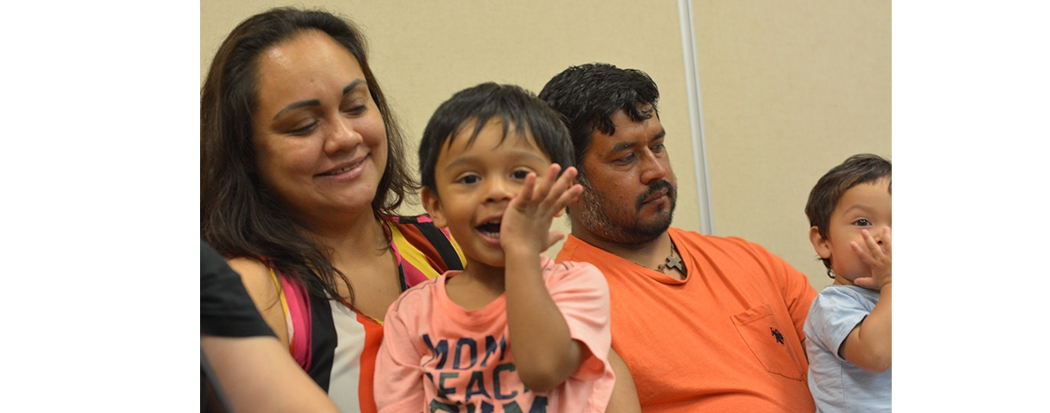
Like Juana, another Hope client, Gabriela also worried about lack of money to buy groceries for her family that includes four children. The family income was severely cut when her husband’s construction work hours were slashed almost in half at the start of the COVID-19 disaster.
Paying the monthly rent on their housing took first priority. But Gabriela, who has participated in several programs at Hope, began attending the weekly food distribution at the center to make ends meet. The staples that are provided have helped cut her weekly grocery bill from between $150-$200 to about $50.
But the worries remain. The continuing pandemic has hurt the construction industry, and 70 of her husband’s coworkers have been laid off. “I am afraid that one day they will fire my husband too,” Gabriela said. “Now, we are doing odd jobs on weekends to help us make ends meet.”

White Plains, NY: El Centro Hispano, Inc. Assists a COVID-19 Mother
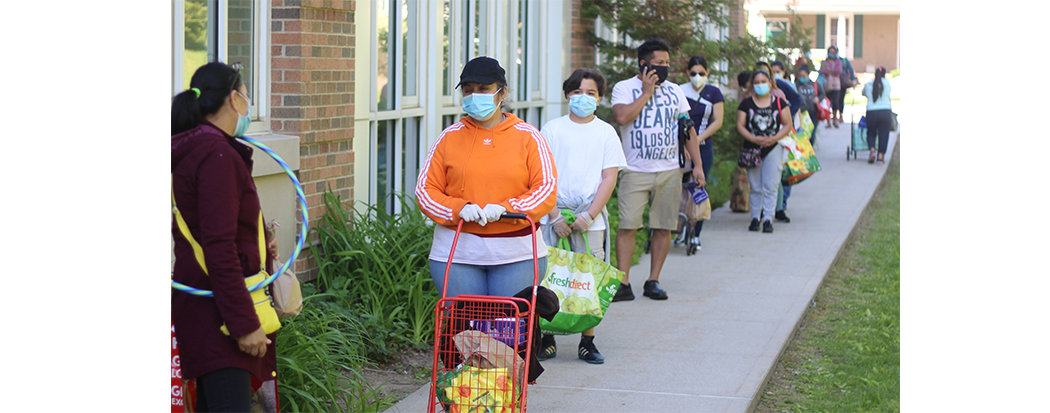
In agonizing times, immigrants can feel helpless and isolated from sources that might provide assistance. That was the case of a single mother of a toddler who was diagnosed with COVID-19.
A friend reached out to El Centro Hispano on behalf of the mother who did not know where to get help. After confirming the illness, El Centro Hispano wrote out a check to the mother from its Assistance Fund which received a $20,000 grant from Hispanic Federation to support vulnerable members of the community. Weeks went by without the check being cashed. When the agency reached out to the mother, it learned she had turned the check over to her landlord to help pay for rent she owed so that she and her child would not be evicted. Her priority was to keep her child and herself under a roof.

Woodside, NY: Neighborhood Housing Services of Queens CDC, Inc.
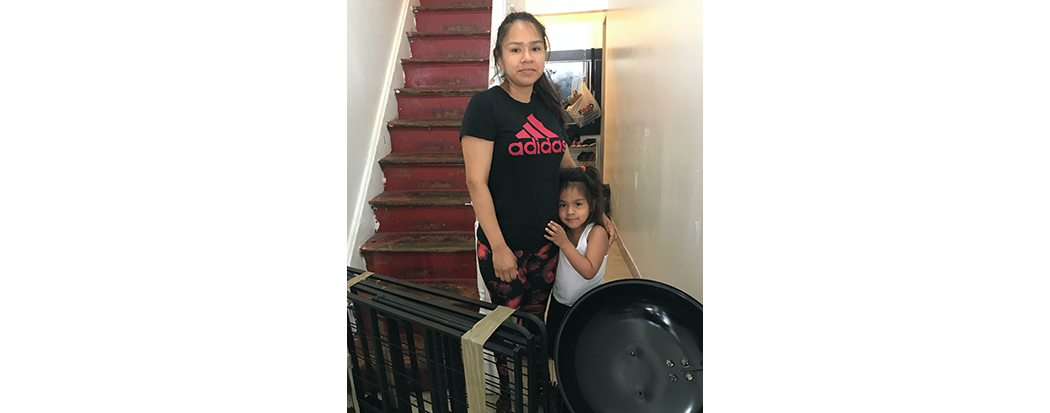
The pandemic disproportionately struck down more Latinos and African-Americans than others. In Corona, Queens, Maribel, felt the impact. The mother of five became distressed when her husband contracted the virus and had to stop working. Her father-in-law also contracted the disease and passed away.
Bills piled up and her children did not have beds on which to sleep. But that changed after Neighborhood Housing Services stepped in. The agency not only provided Maribel and her children with food assistance, but when they discovered her children did not have a bed to sleep on, they provided her a mattress and bed frame. These small acts of kindness went a long way to help her family. “Thank God for the organization; they are helping me a lot,” Maribel said. “My children now have beds.” Thanks to the generosity of donors like you, the organization was able to help 347 other families in distress like Maribel. Hispanic Federation's Nonprofit Emergency Assistance Fund provided a $25,000 grant to support programs at Neighborhood Housing Services in Queens.

Get Up! Get Moving! Shaking off the Pandemic Blues

Millions of us lucky enough to have avoided the dangerous COVID-19, are nonetheless are suffering a more common side-effect caused by stress, boredom, staying indoors, and…did we mention stress about job, income and food insecurities? The side-effect is weight gain from unhealthy eating habits and lack of exercise.
The pandemic lifestyle, which can lead to serious illnesses, presented a new challenge this year for Hispanic Federation’s Florida team, which hosts an annual, in-person, family physical activity and healthy lifestyle event called ¡Vive tu Vida! Get Up! Get Moving! Realizing COVID-19 safe distancing guidelines would require a virtual event for the multi-day health fair, the organizers created a series daily events online including mind relaxation, jumping jacks, a burpee challenge and healthy cooking hints. Prizes were offered to increase participation.
The highlight was a healthy family cook-off in contestants’ homes, hosted by celebrity Master Chef Aaron Sanchez. First, the chef prepared a healthy and tasty meal, “with a Latin flavor,” of course. Then four chosen families received the chef’s ingredients and created their own original meals. The grand prize was $1,000 for groceries.
The winning team was the Mendoza-Hernandez family led by mom Claudia, who introduced the multiple ingredients and then let her two sons and husband chop vegetables, puree a chicken breast cooked in vegetable stock, and sauté other cubed chicken breast pieces with onion and garlic in soy and barbecue sauce. The presentation--a major judging point--featured seasoned mixed vegetables dropped into small “baskets” made with long strips of sea cucumber. The sautéed chicken rested on a bed of lettuce, white rice was topped with avocado slices, and a small cup to the side held the creamy chicken and vegetables.
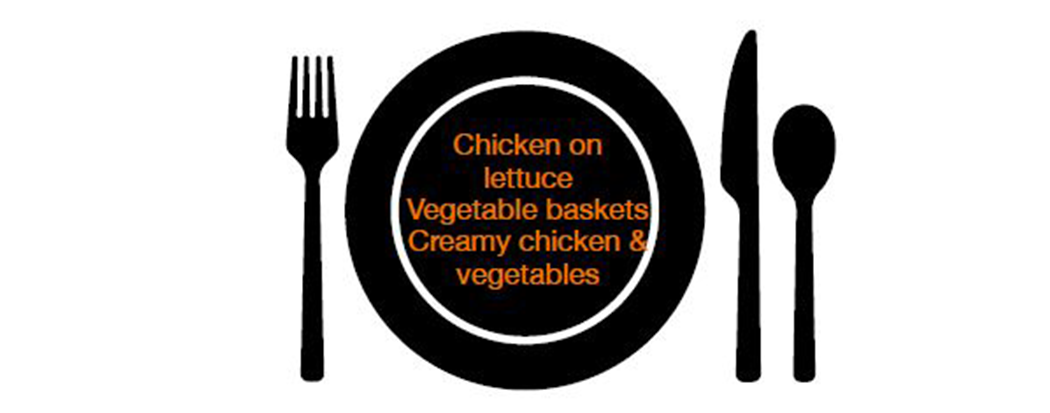
Prize-Winning, Healthy Chicken Recipe:
- Vegetable cream: Boil a chicken breast in water with salt, onion and garlic. When ready, add the vegetables and boil for 3 more minutes. Remove from the heat and blend. Serve and decorate with cilantro sprigs.
- Chicken: Cut a big purple onion into strips and place in a pan with 2 finely chopped garlic cloves, a splash of soy sauce and a splash of BBQ sauce. Let it cook and add diced chicken breasts. Mix well and continue cooking. Serve on a bed of lettuce.
- Multicolored salad baskets: Cut the cucumber into wide strips with a potato peeler. Form rolls or baskets with each slice. Fill the baskets with the following ingredients, all chopped into small squares and mixed together: purple onion, tomato, corn from the cob, cilantro, tomato, red, yellow and green peppers.
- Accompaniment: Serve with brown rice decorated with avocado slices.

HF’s Workforce Development and Digital Trraining of 10K Latinos is Surviving COVID-19
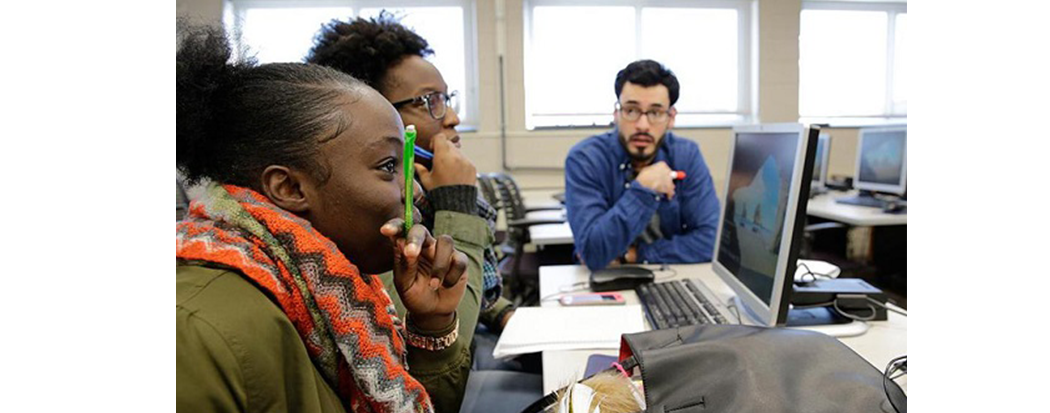
In a year disrupted by a global pandemic, earthquakes in Puerto Rico, and a broad public debate about systemic racism epitomized by the deaths of blacks at the hands of police, our goal to train the Latino workforce for the jobs of tomorrow took on greater significance. Our mission to socially, politically and economically empower Latinos would not be stopped by COVID-19.
Hispanic Federation focused this year on carrying out our digital job training programs across 20 Latino-led and Latino-serving nonprofit organizations, seeded in 2019 with a $2 million grant from Google.org. Indeed, we expect to meet our goal of training 10,000 Latinos in “career-aligned” digital skills by this time next year.
The importance of arming the Latino workforce with careers to meet future needs is underscored by two key points:
- Latinos make up 16 percent of the U.S. labor market and are expected to make up half of the people entering the workforce in five years.
- Deeply impacted by illnesses and deaths due to COVID-19, Latinos are facing severe economic hardships, according to the Pew Research Center, including an increase in unemployment from 4.8% in February to a peak of 18.5% in April before dropping to 14.5% in June, a rate that is even higher for Hispanic women.
Latinos are the future.
Thankfully, Google.org, the philanthropic arm of the global information technology leader, recognized the need in the growing Latino workforce when it granted Hispanic Federation funds to launch an accelerator to strengthen Latino-serving institutions with workforce development and digital training programs.
With a great sense of purpose and with support from our generous donors, we continue marching forward toward a better future for our communities.

